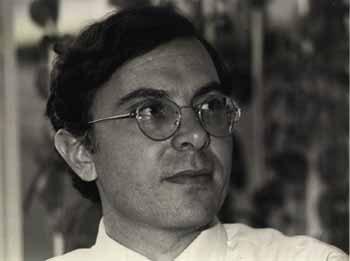

BA, Modern Islamic History and Arabic, The Hebrew University of
Jerusalem (1974)
PhD, Near Eastern Studies, Princeton University (1979)
Post-Doctoral Fellow, American Research Center in Egypt, Cairo
(1979/80)
Senior Associate Member, St Antony's College, University of Oxford
(1986/7)
Visiting Scholar, History Department, University of Pennsylvania,
(1993/4)
Member of the Steering Committee, European Science Foundation
Program of "Individual and Society in the Mediterranean Muslim
World"
Member of the Editorial Panel, Mediterranean Historical Review
Books
The Ottoman Slave Trade and Its Suppression, 1840-1890, Princeton:
Princeton University Press, 1982; translated into Turkish as (capital
letters represent special characters in Turkish): OsmanlI kOle
ticareti, 1840-1890, Istanbul: Tarih VakfI Yurt YayInlarI, 1994
Introduction to the History of the Ottoman Empire, Tel-Aviv, 1985
(in Hebrew)
State and Society in Mid-Nineteenth-Century Egypt, Cambridge:
Cambridge University Press, 1990
Egypt on the Threshold of the Modern Era (18th and 19th centuries):
A New Interpetation, Tel-Aviv, 1996 (in Hebrew)
Slavery and Abolition in the Ottoman Middle East, Seattle: University
of Washington Press, 1997 (in press)
with Israel Gershoni (eds), Cultural Processes in Muslim and Arab
Societies, Durham: Duke University Press, 1993/4: Vol 1, "Medieval
and Early Modern Periods," Poetics Today, 14/2, special issue
(Summer 1993); Vol 2, "Modern Period I," Poetics Today,
14/3, special issue (Fall 1993); Vol 3, "Modern Period II,"
Poetics Today, 15/2, special issue (Summer 1994)
Articles (select listing)
"The Legislative Process in the Ottoman Empire in the
Early Tanzimat Period," International Journal of Turkish
Studies, 1/2 (1980): 99-108
"Slave Dealers, Women, Pregnancy, and Abortion: the Story
of a Circassian Slave-girl in Mid-Nineteenth-Century Cairo,"
Slavery and Abolition, 2/1 (1981): 53-68
"Law, Practice, and Social Reality: A Theft Case in Cairo,
1854," Asian and African Studies, 17/1-3 (1983): 153-173
"The Sanjak of Jerusalem in the Sixteenth Century: Aspects
of Topography and Population," Archivum Ottomanicum, 9 (1984):
279-319
"The Imperial Eunuchs of Istanbul: From Africa to the Heart
of Islam," Middle Eastern Studies, 20/3 (1984): 379-390
"Muhammad cAli Basha or Mehemt Ali Pasa?" Middle Eastern
Studies, 21/4 (1985): 141-159
"Ottoman Concepts of Slavery in the Period of Reform (1830s-1880s),"
in Martin A Klein (ed), Breaking the Chains: Slavery, Bondage
and Emancipation in Modern Africa and Asia, Madison: University
of Wisconsin Press, 1993: 37-63
"Shemsigul: A Circassian Slave in Mid-Nineteenth-Century
Cairo," in Edmund Burke, III (ed), Struggle and Survival
in the Modern Middle East, Berkley & Los Angeles: University
of California Press, 1993: 59-74
"The Emergence of Ottoman-Local Elites in the Middle East
and North Africa, 17th-19th Centuries," in I Pappé and M
Ma'oz (eds), Essays in Honour of Albert Hourani, Oxford &
London: St Antony's College and Tauris Press, 1997 (in press)
"Muhammad cAli Pasha," Encyclopædia of Islam, second
edition, Leiden: E J Brill, Vol 7 (1991): 423-431
Ottoman history
social and cultural history of the Arab Middle East (19th-20th
centuries)
Egyptian history (18th-20th centuries)
Introduction to the History of the Ottoman Empire
Social History of the Arab Middle East
Advanced tutorial for concentrators in modern Middle East History
Albert Hourani's Contribution to the Study of Middle East History
The formation of Ottoman-local elites in the Middle East and North
Africa (17th-19th centuries)
Collective memory in the Ottoman Middle East
phone:972-3-6409750 (office)
fax: 972-3-5228621
You Can mail Ehud R. Toledano by pressing here